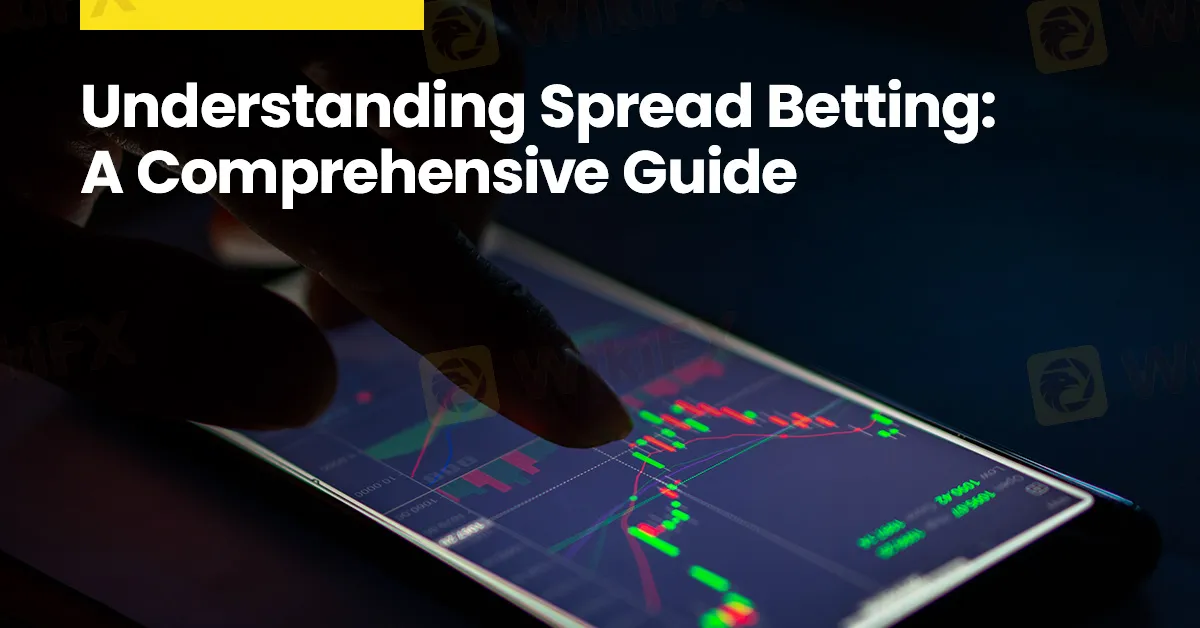简体中文
繁體中文
English
Pусский
日本語
ภาษาไทย
Tiếng Việt
Bahasa Indonesia
Español
हिन्दी
Filippiiniläinen
Français
Deutsch
Português
Türkçe
한국어
العربية
Understanding Spread Betting: A Comprehensive Guide
Abstract:Offering flexibility and potential for profit in both rising and falling markets, spread betting has emerged as a favoured choice among traders seeking leveraged opportunities. So, what exactly is spread betting, and how does it work?

In the dynamic world of financial trading, various strategies and instruments cater to different risk appetites and investment goals. One such method gaining popularity, particularly in the realm of forex and cryptocurrency trading, is spread betting. Offering flexibility and potential for profit in both rising and falling markets, spread betting has emerged as a favoured choice among traders seeking leveraged opportunities. So, what exactly is spread betting, and how does it work?
At its core, spread betting is a form of derivative trading where participants speculate on the price movements of various financial instruments without actually owning the underlying asset. Instead of purchasing the asset outright, traders place bets on whether the price will rise or fall within a specified time frame. The profit or loss is determined by the accuracy of the prediction and the size of the stake.
One of the key features of spread betting is the spread itself. This refers to the difference between the buying (ask) and selling (bid) price of an asset. Unlike traditional trading methods where commissions or fees are charged, spread betting incorporates the spread as the primary cost of trading. Traders aim to profit by correctly predicting price movements that exceed this spread.
For instance, if a trader believes that the price of a currency pair like EUR/USD will increase, they would place a “long” spread bet. Conversely, if they anticipate a decrease in price, they would place a “short” spread bet. The potential profit or loss is determined by how much the price moves in the chosen direction.

Spread betting also offers leverage, allowing traders to control a larger position size with a relatively small amount of capital. While leverage can amplify profits, it also magnifies losses, making risk management crucial. Traders must be mindful of the potential for significant losses, especially when using high leverage.
Furthermore, spread betting provides flexibility in terms of trading various markets, including forex, indices, commodities, and cryptocurrencies. This versatility enables traders to diversify their portfolios and capitalize on opportunities across different asset classes.
Regulation and tax implications are essential considerations for spread bettors. Regulations vary by jurisdiction, with some regions imposing restrictions or requiring licensing for providers. Additionally, tax treatment differs between countries, with spread betting often considered tax-free in certain jurisdictions, subject to specific criteria.
Despite its appeal, spread betting carries inherent risks and complexities that may not be suitable for all traders. Market volatility, leverage, and the potential for significant losses underscore the importance of thorough research, disciplined risk management, and a sound trading strategy.
In conclusion, spread betting offers a flexible and leveraged approach to trading financial markets, allowing participants to profit from both upward and downward price movements without owning the underlying asset. By understanding the mechanics, risks, and regulatory considerations associated with spread betting, traders can make informed decisions and navigate the markets with confidence. As with any form of trading, diligence, and prudent risk management are essential for success in spread betting.

Disclaimer:
The views in this article only represent the author's personal views, and do not constitute investment advice on this platform. This platform does not guarantee the accuracy, completeness and timeliness of the information in the article, and will not be liable for any loss caused by the use of or reliance on the information in the article.
Read more

Why More People Are Trading Online Today?
Discover why online trading is booming with tech, AI, and a push for financial freedom. From stocks to crypto, it’s a thrilling hustle for all.

Interactive Brokers Expands Crypto Trading with Solana, XRP, Cardano, and Dogecoin
Interactive Brokers adds Solana, XRP, Cardano, and Dogecoin to its platform, enabling U.S. and U.K. clients to trade crypto 24/7 with low fees.

Fidelity Investments Explores Stablecoin Innovation in Digital Assets Sector
Fidelity Investments tests a stablecoin, joining major financial firms in the booming crypto sector. Discover how this impacts digital payments and blockchain adoption.

Hantec Markets Launches InsightPro: AI-Powered Real-Time Trading Signal Tool for Traders
Hantec Markets introduces InsightPro, an AI-powered trading tool offering real-time market insights, signals, and analysis for better trading success.
WikiFX Broker
Latest News
Enlighten Securities Penalized $5 Million as SFC Uncovers Risk Control Failures
Why Are Financial Firms Adopting Stablecoins to Enhance Services and Stability?
Experienced Forex Traders Usually Do This Before Making a Lot of Money
Octa vs XM:Face-Off: A Detailed Comparison
When High Returns Go Wrong: How a Finance Manager Lost RM364,000
Bridging Trust, Exploring Best—WikiEXPO Hong Kong 2025 Wraps Up Spectacularly
Interactive Brokers Expands Crypto Trading with Solana, XRP, Cardano, and Dogecoin
Fidelity Investments Explores Stablecoin Innovation in Digital Assets Sector
Why More People Are Trading Online Today?
SEC Ends Crypto.com Probe, No Action Taken by Regulator
Currency Calculator







